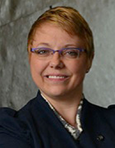Nominations for 2022 Honorary membership are open and may be submitted through January 26, 2022, 11:59 pm Eastern. The ASCI bylaws provide the following guidance regarding nominations to Honorary membership:
Any distinguished person who has contributed significantly to the Society’s objectives, who has not been previously and unsuccessfully nominated for Active or International membership, and who enjoys an unimpeachable moral standing is eligible for nomination in this category. A nomination in this category may be proposed by any member (including members of the Council) in good standing, and must be accompanied by a list of the nominee’s achievements and a statement regarding the significance of the nominee’s contributions. The Council shall recommend to election a total not to exceed ten, which is separate from the limit for Active and International recommendations.
Proposers and supporters of nominations should carefully review the information below. Questions should be sent by email to staff@the-asci.org.
To ensure proper tracking of nominations, all information and documents must be supplied online.
To begin:
- Access your member account.
- In the “Nominations” area, see “Nominations for Honorary membership, 2022”.
- Click “Start nomination” and follow the guidance to select your role (Proposer or General Supporter) and provide the nominee’s name.
Proposers:
Proposers are responsible for ensuring that all information provided for the nomination is accurate and complete. A Proposer may grant the nominee access to edit certain sections of the nomination, as detailed below.
The ASCI acknowledges and confirms a nomination by email after a review of the information supplied to ensure the nominee is eligible and that the nomination is complete.
Nomination sections:
- About the nominee — nominee may edit this information.
- Nominee’s demographic information — nominee may edit this information. The ASCI requests responses to 9 sections that will help provide the foundation for expanding diversity, fostering inclusion, and achieving equity in the ASCI. All response areas are voluntary, with a “Prefer not to answer” option available for each section. Anyone with access to person-specific information (such as ASCI leadership, members associated with review processes, and staff members) will be required to keep the information confidential. Depersonalized summary information of all response areas may be provided in periodic public reports.
- Support for nomination — must be completed by the Proposer (only accessible to the Proposer). Proposers may attach General Supporters (limit of 3 per nomination) to the nomination by searching the ASCI member directory or by adding information for supporters who are not ASCI members.
- Nominee’s institutional affiliation — nominee may edit this information
- Documents — nominee may edit this information:
- Full academic curriculum vitae, including full bibliography (with original research separated from other types of publications) and invited lectures. In the bibliography, ensure that the nominee’s name is presented in bold face.
- NIH-style biographic sketch (5-page limit), following the current format available at:
http://grants.nih.gov/grants/forms/biosketch.htm
Information about current independent grant support, indicating clearly whether the nominee is a principal investigator, should be noted, so that the Council has standardized information regarding all nominees. Independent research support represents one of several criteria used in assessing independence. - PDFs of publications noted in “Most significant publications” section below.
- Most significant publications — nominee may edit this information. List the nominee’s 3 most significant publications, excluding those representing work done by the nominee as a trainee, and provide annotation for each (limit of 50 words) describing the publication’s key findings and significance. Present authors in the original publication sequence, with the nominee’s name in capital letters, followed by numbered notation of the nominee’s role in parentheses (1 for principal investigator, 2 for collaborator), title, journal name, volume, inclusive page numbers, and year. For example: John Q. Public and JANE DOE (1). Title. Journal. 1:1-10 (2015).
- Seminal contribution — nominee may edit this information. Summarize the nominee’s defining seminal contribution(s) and why this work forms the basis for the nomination. 75-word limit.
- Proposer’s general statement on the nominee — must be completed by the Proposer. In the Proposer’s own words, describe the quality, originality, and impact of the nominee’s scientific work and the consistency and importance of the nominee’s research theme. Include a statement on the level of independence from the nominee’s mentor(s) and the nominee’s productivity and stature in the field. 500-word limit. Proposers should expand upon the candidate’s seminal contribution(s), including the originality, novelty, and impact of this research on the field. Note any special circumstances (e.g., childbearing, personal or family illness) that influenced the candidate’s research activities. Information regarding major awards, invitations to give plenary lectures (especially at national and international meetings), and invitations to write chapters in major textbooks should be included as applicable — the quality and quantity of work are important factors.
General Supporters
The General Supporter who is an ASCI member should following the guidance above in the “To begin” section to complete a support form online. General Supporters who are not ASCI members may complete the nomination support template and email it to staff@the-asci.org for handling.
- Membership nomination support template (Word document)


